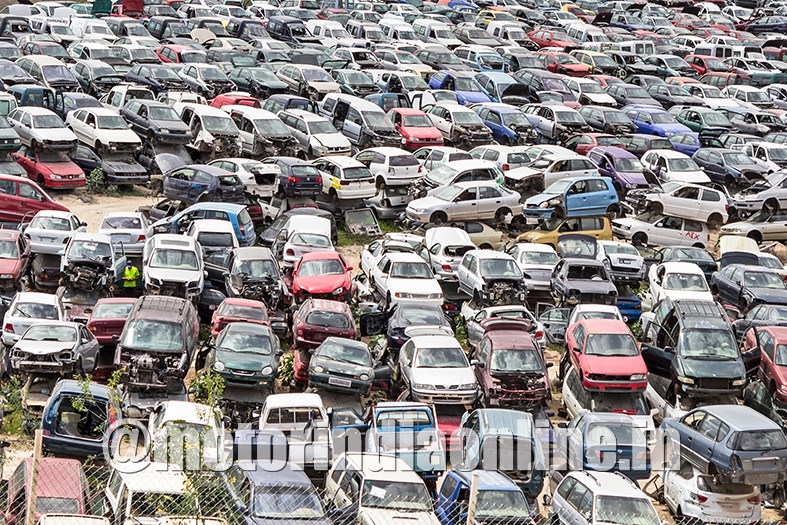Today, in the current environment recycling has been considered a million dollar business. Even though industries of various kind consumes more metals and minerals, automobiles is one of the major users of them. In order to create better environment, many countries across the globe have fixed a age limit for automobile usage and come out with scrappage policy. This will also benefit countries like India which has a large volume of vehicle density creating severe traffic congestion.
The production of automobile results in generation of waste materials; these waste materials are recycled by many manufacturers, as it helps to resolve supply shortage during the manufacturing process. Automotive waste management involves the reuse and recycling of waste materials like metal, solvents, batteries, plastic, and glass. Recycling of these materials helps address environmental concerns and also allows them to address the issue of resource depletion. Currently, approximately 75% of the total vehicle weight is recycled. The End-of-life vehicles try to push the recycling process further: it fixed the percentage of recyclability (85%) and recoverability (95%). The remaining 25% go to landfill, and is known as Auto Shredder Residue (ASR). ASR is mainly composed of foams and fluff (40-52%), plastics (20-27%), rubbers (18-22%) and metals (4-15%) and there is currently no cost-effective recycling technology for plastics and foam.
Recycling is the need of the hour. Talking about vehicle recycling, almost 50,000 new vehicles are put on Indian roads every day. If we take the average life of a vehicle to be 15 years, there are currently about 26 million end-of-life vehicles in India. And this is expected to go up to 42 million by 2025.
These numbers are testimony to the tremendous growth potential and necessity for the recycling industry. The market is showing a positive transition as awareness about the benefits of recycling as well as disadvantages of doing it in an unscientific manner are increasing. Deploying state-of-the-art recycling technologies for sorting waste will further improve recycling. This is going to be a huge business.
Already Mahindra has worked out plans and it will be a partnership / tie-up model as authentication / verification is done by car companies and given to the recycler for dismantling.
Also the five-acre facility, set up by a joint venture with government-owned company MSTC, went on stream in April last year. Construction of five more facilities at different locations of the country is underway and expected to become operational soon. The company claims it has got a better than expected response to this new unit.
